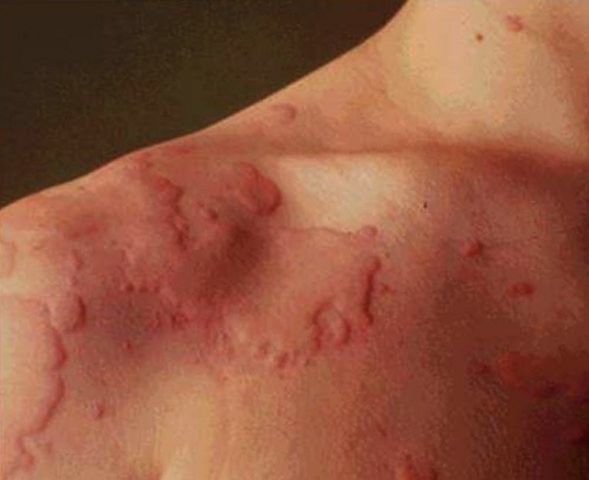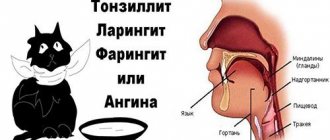Each person's allergic reactions are predominantly individual. There are allergies: to fur, poplar fluff, food products, and among all this, not least of all is an allergy to salt. The main trigger of allergies is table or sea salt. Most people with this feature have a fairly weak immune system, which, in turn, leads to more serious disorders in the body.
Allergies to table and sea salt are considered quite rare, and almost without exception, doctors are of the opinion that it occurs in people who have problems not only with the immune system, but also with the gastrointestinal tract.
Causes of allergies
First of all, it is worth knowing that salt as a separate product cannot become an allergen. The causes of allergies are the additives it contains.
- The first and main allergen is iodine . It is this substance that quite often leads to salt intolerance in people of different ages, primarily in children. But most people still prefer iodized salt in order to compensate for iodine deficiency in the body.
- All kinds of flavorings and dyes . These substances are rarely in demand among salt producers, but still some of them resort to this method to improve the quality and taste of salt. Therefore, you should carefully read the composition of the product.
- Quite often on store shelves you can see among ordinary salt a so-called mixture , which, in addition to the substance itself, contains spices. They can cause an allergic reaction.

The essence of the disease
The main reason for the development of allergies is a malfunction of the immune system. Most often, for sensitive people, food products, plant pollen, saliva and other animal secretions become irritants. Sometimes symptoms appear only after a certain amount of allergens have accumulated in the body.
A food allergic reaction is accompanied by unpleasant and dangerous changes in the body when consuming certain foods. Identifying a food allergen is not easy: a person eats many different foods that can cause symptoms.
Symptoms of salt allergy
Salt allergy, although a rare disease, is quite life-threatening, so you need to know its symptoms.
Allergies may manifest themselves as the following:
- A rash appears in the form of hives - mainly on the neck, arms and abdomen.
- The affected areas are very itchy, which, of course, causes discomfort.
- Pain in the abdomen.
- Swelling of the eyes, lips and neck.
- Unpleasant sensations in the mouth.
- Dizziness, in severe cases – loss of consciousness.
- Diarrhea, vomiting, nausea.
- Severe shortness of breath, low blood pressure.
People who have an allergic reaction to salt experience a rapid development of symptoms. However, it is difficult to determine when the first signs appeared.
Depending on the characteristics of each person’s body, symptoms can appear from two hours to two or even three days.

Manifestations of the reaction
Sensitivity to both the additives present in salt and the components of dishes, the taste of which it improves during the process of adding salt, manifests itself in the same way. Or, to be more precise, the signs of a pathological reaction do not have typical differences depending on the type of food allergen. Thus, when we mention allergic sensitivity to salty foods, we mean a variety of food allergy symptoms:
- dermatological;
- gastroenterological;
- otolaryngological;
- ophthalmological; systemic.
Dermatological and gastroenterological symptoms
These include such manifestations as:
- Rashes on the skin in the form of spots, less often - vesicles, blisters.
- Itching of the skin, mucous membranes.
- The appearance of peeling and dryness of certain areas of the skin.
- Nausea, heaviness in the stomach, heartburn.
- Loss of appetite, refusal to eat.
- Abdominal pain, flatulence, upset stool.

Skin symptoms occur most often, especially if the patient is a small child. Children can react to a variety of food components (for example, cow's milk protein, fruit and vegetable allergens), but if the product was previously consumed without consequences, it is not even suspected of being an allergen. Digestive manifestations are characteristic of both an allergic reaction and a typical food intolerance reaction associated with enzyme disorders; in children they are usually caused by immaturity of the digestive system.
Otolaryngological, ophthalmological and systemic symptoms
These are manifestations from the ENT organs - nose, pharynx, ears, as well as from the eyes. It is worth noting that most often both adults and children experience signs of allergic rhinitis (runny nose), including:
- nasal congestion;
- difficulty in nasal breathing;
- repeated sneezing in the form of attacks;
- clear foamy discharge from the nasal cavity.
Symptoms of allergic rhinitis develop quickly (within a few minutes), and usually appear without characteristic “precursors”.
Allergic conjunctivitis is characterized by:
- redness and swelling of the eyelids;
- itching of the eyelids;
- lacrimation.
How to treat a salt allergy
In the treatment of any allergy, as a rule, two doctors take part: an allergist and an immunologist. And if the patient is in the hospital, he will recover faster.
Treatment consists of two stages:
- A course of taking antihistamines.
- Immunotherapy.
To suppress the first signs of a salt allergy, the patient is first prescribed medications that lower the level of histamines in the blood. Currently, the latest generation of antihistamines are used. They are considered the most effective and have no special contraindications or side effects. Professionals recommend taking a course of medications such as:
- "Tsetrin"
- "Claritin"
- "Loratadine"
It is important to know that no antiallergic drugs can overcome this disease; they only help relieve unpleasant symptoms. Today, doctors have begun to use so-called immunotherapy. It makes it possible to completely rid a person of allergies, but this type of treatment must be carried out under the strict supervision of a doctor.
This therapy is quite complex and long-term, but the result is worth it, because this method of treatment helps in almost 100% of cases of the disease.
Properties of salt
Salt can affect digestion, which can increase vitality.
It is rich in water-soluble nutrients, important trace elements and minerals. Salt contains selenium, a component with an antioxidant effect. It protects cells from the negative damage of free radicals.
With the help of salt, harmful substances are removed from the body. It copes well with poisoning because it slows down the absorption of toxic components by the intestinal mucosa and delays their entry into the blood. The product fights radiation and other harmful radiation. Also, due to salt, hydrochloric acid is formed in the gastric juice, which has a positive effect on the digestion of food and eliminates microbes.
Folk remedies
In addition to treatment with pharmaceutical drugs, traditional medicine is widely used, of course, only after consultation with a professional. This therapy consists of taking decoctions of medicinal herbs. The most effective are the following:
- Freshly squeezed cabbage juice - it must be taken for a month, three tablespoons per day, twenty minutes before meals.
- In cooled but pre-boiled water - you need to take about 300 milliliters of water - add two finely chopped celery to it. Leave for about two hours, then divide the tincture into three equal portions and take throughout the day before meals. The course of treatment is at least three months.
- You need to take three medium-sized onions, peel, chop and add one liter of cool water. Let it brew for about a day, then consume it orally the day before.
- Alfalfa tincture is a fairly effective remedy for combating allergies. You need three tablespoons of alfalfa, pour two hundred grams of boiling water and let it brew for about thirty minutes, then take this decoction three times a day, a teaspoon an hour before meals. The course of such treatment is one month.
Algorithm of action, principles of treatment
What to do if you suspect a salt allergy? Although this product cannot provoke a reaction, symptoms still occur - which means you need to look for the real cause. However, first of all, it is important to cope with the symptoms that have already appeared. To do this, you need to stop eating, rinse your mouth with clean water, if necessary, consult a doctor and take prescribed medications (Eden, Loratadine). In case of a systemic reaction that manifests itself as threatening symptoms, you must immediately call an ambulance.
After relief of the acute condition, it is worth starting diagnostics. The patient needs:
- Assess the composition of the diet.
- Find out if there are any highly allergenic foods in your diet.
- Keep a food diary.
All these actions are carried out under the supervision of a doctor. Which products are considered highly allergenic can be found out from specially designed tables. If the doctor deems it necessary, special allergy tests and laboratory tests are performed. After identifying the allergen, a treatment strategy suitable for the specific patient is developed - for example, taking medications (sodium cromoglycate, Cetrin) in recommended dosages for several weeks.
It is also worth noting that to prevent not only allergies, but also other pathologies, it is better for children and adults not to overuse salt. A small child does not need a lot of salt, except in situations where the water-salt balance is disturbed due to vomiting or profuse sweating - but in such cases, the violations are corrected by a qualified doctor. Dose salt carefully, choose a product that does not contain additives, watch what dishes are included in the diet and are added with salt - this is the only way to achieve confidence in the absence of the risk of an allergic reaction.
Hello, dear visitors of the site alergino.ru. It is impossible to imagine almost any dish without salt. It helps normalize the process of digestion and assimilation of food, imparts taste to food. But there are people whose bodies practically do not accept salt. Although such an allergy is very rare, it is still worth knowing how it manifests itself and methods of dealing with it, especially if such a reaction occurs in a child.
An allergy to salt is quite difficult to diagnose, since it is difficult to determine what exactly is the cause and isolate it from the daily diet. Allergies can occur not only to table salt, but also to sea salt, although it is much less common.
Most often, children with weakened immune systems are susceptible to this type of allergy. Also, an allergy to salt can manifest itself if liver or stomach diseases are present. Treatment with antibiotics can also lead to a weakened immune system and, as a result, allergies.
A factor influencing the appearance of an allergy to salt may be its poor-quality cleaning; as a result, the reaction occurs not to the salt itself, but to the impurities that remain in it after poor-quality cleaning. An important role is played by the area in which salt is mined; if there is a high radioactive background or other contamination, then this all negatively affects the quality of the salt that ends up on our table.
The cause of allergies can be a hereditary predisposition and frequent colds, which over time lead to a weakening of the immune system. One of these reasons, or the complex effect of all factors, leads to an imbalance in the body, and it is no longer able to distinguish harmful from beneficial substances.
There are many symptoms of allergies. A rash may appear on almost the entire body, but most often on the face and hands, which eventually develops into urticaria. You may feel dizzy and even lose consciousness. There is a tingling sensation in the mouth, and cramping pain in the abdomen. Digestion becomes upset, shortness of breath and tachycardia appear. In rare cases, even swelling of the mucous membranes is observed. The most important thing is that even if the symptoms are not clearly expressed, they appear rarely, you should under no circumstances put off going to the doctor, since over time the clinical picture will worsen and can even lead to death.










